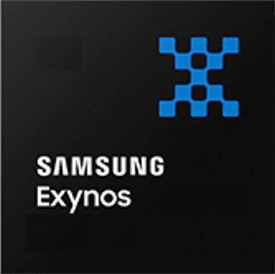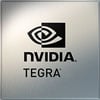
Samsung Exynos 7884 Benchmark, Test and specs
Last updated:
The Samsung Exynos 7884 has 8 cores with 8 threads and is based on the 2. gen of the Samsung Exynos series. The processor was released in Q2/2018. The Samsung Exynos 7884 scores 232 points in the Geekbench 5 single-core benchmark. In the Geekbench 5 multi-core benchmark, the result is 829 points.

| Name: | Samsung Exynos 7884 |
|---|---|
| Family: | Samsung Exynos (46) |
| CPU group: | Samsung Exynos 7872/7884/7885/7904 (4) |
| Architecture: | Cortex-A73 / Cortex-A53 |
| Segment: | Mobile |
| Generation: | 2 |
| Predecessor: | -- |
| Successor: | -- |
CPU Cores and Base Frequency
The Samsung Exynos 7884 has 8 CPU cores and can calculate 8 threads in parallel. The clock frequency of the Samsung Exynos 7884 is 1.60 GHz. The number of CPU cores greatly affects the speed of the processor and is an important performance indicator.
| CPU Cores / Threads: | 8 / 8 |
|---|---|
| Core architecture: | hybrid (big.LITTLE) |
| A-Core: | 2x Cortex-A73 |
| B-Core: | 6x Cortex-A53 |
| Hyperthreading / SMT: | No |
|---|---|
| Overclocking: | No |
| A-Core Frequency: | 1.60 GHz |
| B-Core Frequency: | 1.35 GHz |
Internal Graphics
The Samsung Exynos 7884 has integrated graphics, called iGPU for short. Specifically, the Samsung Exynos 7884 uses the ARM Mali-G71 MP2, which has 32 texture shaders and 2 execution units. The iGPU uses the system's main memory as graphics memory and sits on the processor's die.
| GPU name: | ARM Mali-G71 MP2 |
|---|---|
| GPU frequency: | 0.77 GHz |
| GPU (Turbo): | No turbo |
| Compute units: | 2 |
| Shader: | 32 |
| Hardware Raytracing: | No |
| Release date: | Q2/2016 |
| Max. displays: | 1 |
|---|---|
| Generation: | Bifrost 1 |
| Direct X: | 11 |
| Technology: | 16 nm |
| Max. GPU Memory: | 2 GB |
| Frame Generation: | No |
Hardware codec support
A photo or video codec that is accelerated in hardware can greatly accelerate the working speed of a processor and extend the battery life of notebooks or smartphones when playing videos.
| h265 / HEVC (8 bit): | Decode / Encode |
|---|---|
| h265 / HEVC (10 bit): | Decode |
| h264: | Decode / Encode |
| VP8: | Decode / Encode |
| VP9: | No |
| AV1: | No |
|---|---|
| AVC: | Decode / Encode |
| VC-1: | No |
| JPEG: | Decode / Encode |
Memory & PCIeThe processor can use up to memory in 0 memory channels. The maximum memory bandwidth is --. The memory type as well as the amount of memory can greatly affect the speed of the system. |
|
| Memory type: | Memory bandwidth: |
|---|---|
| LPDDR4-1866 | -- |
| Max. Memory: | |
| Memory channels: | 0 |
| ECC: | No |
| PCIe: | |
| PCIe Bandwidth: | -- |
Thermal ManagementThe thermal design power (TDP for short) of the processor is . The TDP specifies the necessary cooling solution that is required to cool the processor sufficiently. The TDP usually gives a rough idea of the actual power consumption of the CPU. |
|
|---|---|
| TDP (PL1 / PBP): | |
| TDP (PL2): | -- |
| TDP up: | -- |
| TDP down: | -- |
| Tjunction max.: | -- |
Technical details
The Samsung Exynos 7884 is made in 14 nm. The smaller the manufacturing process of a CPU, the more modern and energy-efficient it is. Overall, the processor has 2.00 MB cache. A large cache can greatly speed up the processor's speed in some cases such as games.
| Technology: | 14 nm |
|---|---|
| Chip design: | |
| Socket: | -- |
| L2-Cache: | 2.00 MB |
| L3-Cache: | -- |
| AES-NI: | No |
| Operating systems: | Android |
| Virtualization: | None |
|---|---|
| Instruction set (ISA): | Armv8-A (64 bit) |
| ISA extensions: | -- |
| Release date: | Q2/2018 |
| Release price: | -- |
| Part Number: | -- |
| Documents: | Technical data sheet |
Rate this processor
Benchmark results

The benchmark results for the Samsung Exynos 7884 have been carefully checked by us. We only publish benchmark results that have been created by us or that have been submitted by a visitor and then checked by a team member. All results are based on and fullfill our benchmark guidelines.
Geekbench 5, 64bit (Single-Core)
Geekbench 5 is a cross plattform benchmark that heavily uses the systems memory. A fast memory will push the result a lot. The single-core test only uses one CPU core, the amount of cores or hyperthreading ability doesn't count.

|
Intel Celeron J3060
2C 2T @ 2.48 GHz |
||

|
Intel Celeron N2830
2C 2T @ 2.41 GHz |
||

|
AMD A6-3400M
4C 4T @ 2.30 GHz |
||
|
|
Samsung Exynos 7884
8C 8T @ 1.60 GHz |
||

|
Intel Atom x5-Z8550
4C 4T @ 2.40 GHz |
||

|
Intel Pentium T2370
2C 2T @ 1.73 GHz |
||

|
Intel Celeron 847
2C 2T @ 1.10 GHz |
||
Geekbench 5, 64bit (Multi-Core)
Geekbench 5 is a cross plattform benchmark that heavily uses the systems memory. A fast memory will push the result a lot. The multi-core test involves all CPU cores and taks a big advantage of hyperthreading.

|
Intel Celeron 3755U
2C 2T @ 1.70 GHz |
||

|
Intel Pentium E6800
2C 2T @ 3.33 GHz |
||

|
Intel Pentium N3530
4C 4T @ 2.58 GHz |
||
|
|
Samsung Exynos 7884
8C 8T @ 1.60 GHz |
||

|
Intel Atom C2538
4C 4T @ 2.40 GHz |
||

|
Intel Atom x5-Z8550
4C 4T @ 2.40 GHz |
||

|
Intel Pentium B960
2C 2T @ 2.20 GHz |
||
Geekbench 6 (Single-Core)
Geekbench 6 is a benchmark for modern computers, notebooks and smartphones. What is new is an optimized utilization of newer CPU architectures, e.g. based on the big.LITTLE concept and combining CPU cores of different sizes. The single-core benchmark only evaluates the performance of the fastest CPU core, the number of CPU cores in a processor is irrelevant here.

|
Intel Celeron N3450
4C 4T @ 2.20 GHz |
||

|
Intel Celeron 1007U
2C 2T @ 1.50 GHz |
||

|
Intel Atom x6414RE
4C 4T @ 1.50 GHz |
||
|
|
Samsung Exynos 7884
8C 8T @ 1.60 GHz |
||

|
AMD GX-222GC
2C 2T @ 2.40 GHz |
||

|
Intel Atom x7-E3950
4C 4T @ 2.00 GHz |
||

|
MediaTek Helio X20
10C 10T @ 2.10 GHz |
||
Geekbench 6 (Multi-Core)
Geekbench 6 is a benchmark for modern computers, notebooks and smartphones. What is new is an optimized utilization of newer CPU architectures, e.g. based on the big.LITTLE concept and combining CPU cores of different sizes. The multi-core benchmark evaluates the performance of all of the processor's CPU cores. Virtual thread improvements such as AMD SMT or Intel's Hyper-Threading have a positive impact on the benchmark result.

|
AMD GX-420GI
4C 4T @ 2.00 GHz |
||

|
Intel Core i3-2348M
2C 4T @ 2.30 GHz |
||

|
Intel Core i3-2350M
2C 4T @ 2.30 GHz |
||
|
|
Samsung Exynos 7884
8C 8T @ 1.60 GHz |
||

|
Intel Pentium G2010
2C 2T @ 2.80 GHz |
||

|
NVIDIA Tegra X1
8C 8T @ 2.00 GHz |
||

|
MediaTek Helio G35
8C 8T @ 2.30 GHz |
||
iGPU - FP32 Performance (Single-precision GFLOPS)
The theoretical computing performance of the internal graphics unit of the processor with simple accuracy (32 bit) in GFLOPS. GFLOPS indicates how many billion floating point operations the iGPU can perform per second.

|
MediaTek Helio P18
ARM Mali-T860 MP2 @ 0.80 GHz |
||

|
Intel Celeron N2920
Intel HD Graphics (Bay Trail GT1) @ 0.84 GHz |
||

|
Intel Atom Z3785
Intel HD Graphics (Bay Trail GT1) @ 0.83 GHz |
||
|
|
Samsung Exynos 7884
ARM Mali-G71 MP2 @ 0.77 GHz |
||

|
MediaTek Helio P23
ARM Mali-G71 MP2 @ 0.77 GHz |
||

|
Samsung Exynos 7904
ARM Mali-G71 MP2 @ 0.77 GHz |
||

|
Qualcomm Snapdragon 610
Qualcomm Adreno 405 @ 0.55 GHz |
||
Estimated results for PassMark CPU Mark
Some of the CPUs listed below have been benchmarked by CPU-monkey. However the majority of CPUs have not been tested and the results have been estimated by a CPU-monkey’s secret proprietary formula. As such they do not accurately reflect the actual Passmark CPU mark values and are not endorsed by PassMark Software Pty Ltd.

|
AMD A9-9425
2C 2T @ 3.10 GHz |
||

|
Intel Core 2 Quad Q6400
4C 4T @ 2.13 GHz |
||

|
Intel Pentium 4405Y
2C 4T @ 1.50 GHz |
||
|
|
Samsung Exynos 7884
8C 8T @ 1.60 GHz |
||

|
Intel Core i3-540
2C 4T @ 3.06 GHz |
||

|
Intel Celeron G1620T
2C 2T @ 2.40 GHz |
||

|
Intel Celeron G1610
2C 2T @ 2.60 GHz |
||
Benchmarks

Geekbench 5 (SC)
2,488 entries
2,488 entries

Geekbench 5 (MC)
2,461 entries
2,461 entries

Geekbench 6 (SC)
1,755 entries
1,755 entries

Geekbench 6 (MC)
1,703 entries
1,703 entries

FP32 SP (iGPU)
2,042 entries
2,042 entries

PassMark CPU-Mark
2,392 entries
2,392 entries
Popular comparisons
back to index




